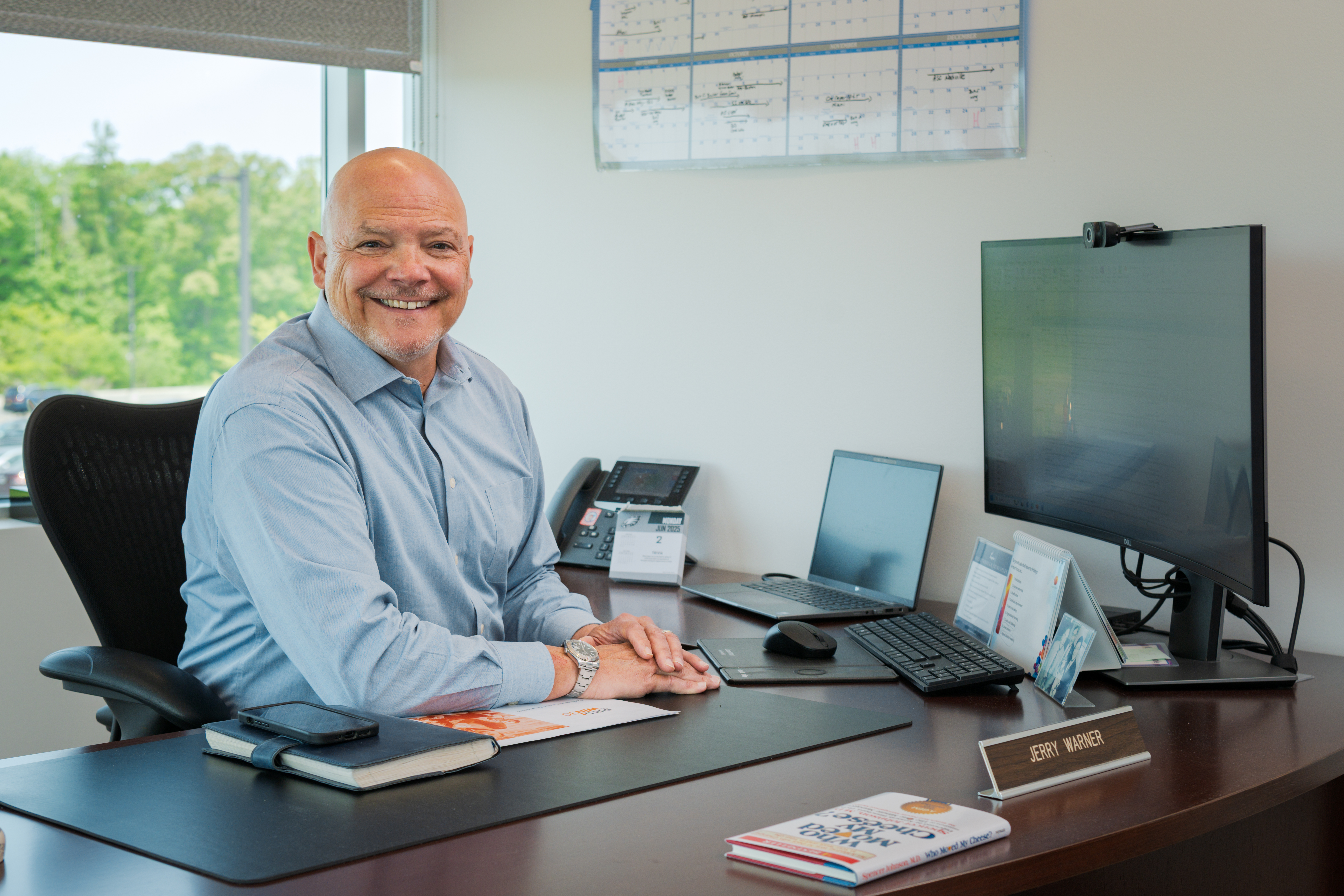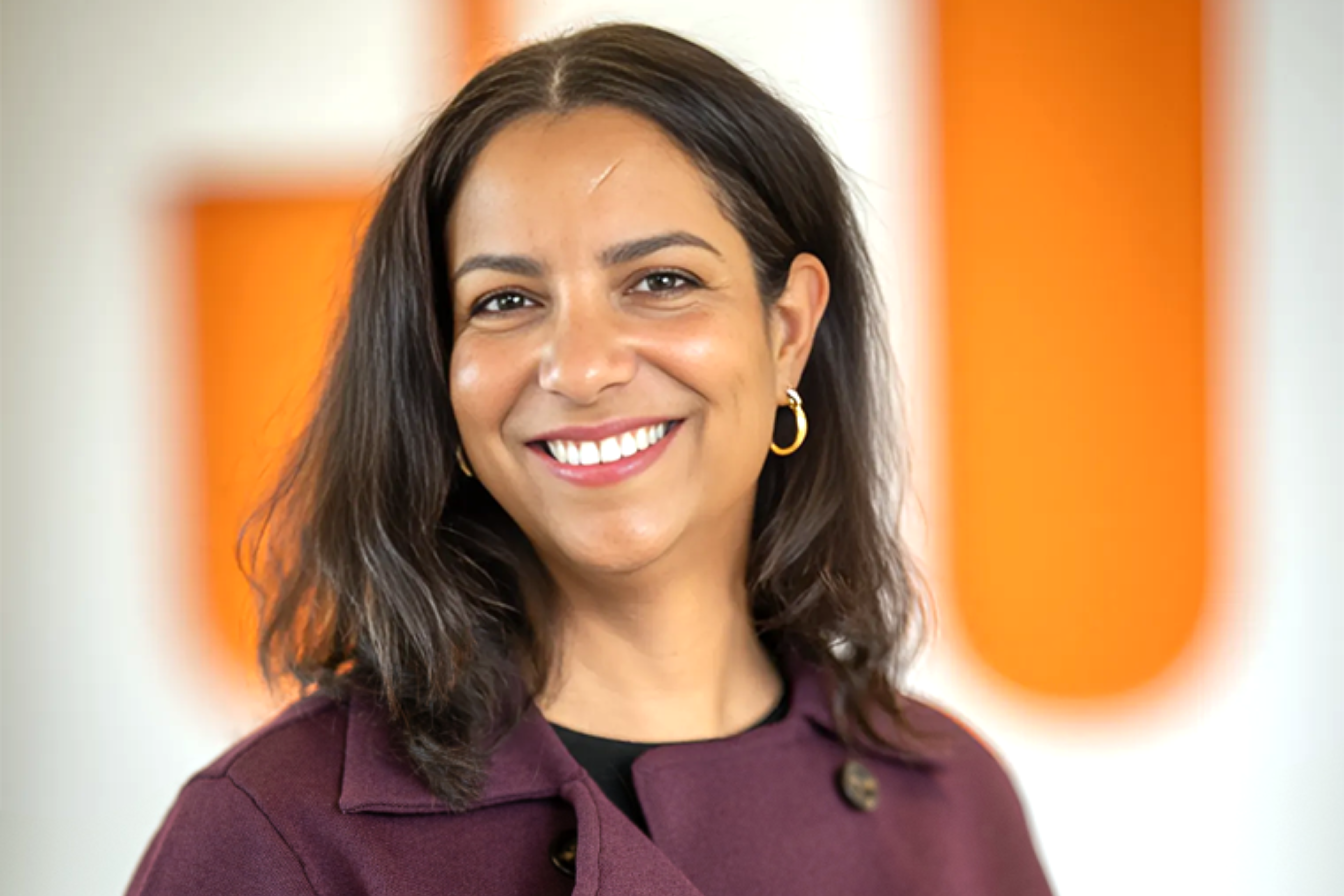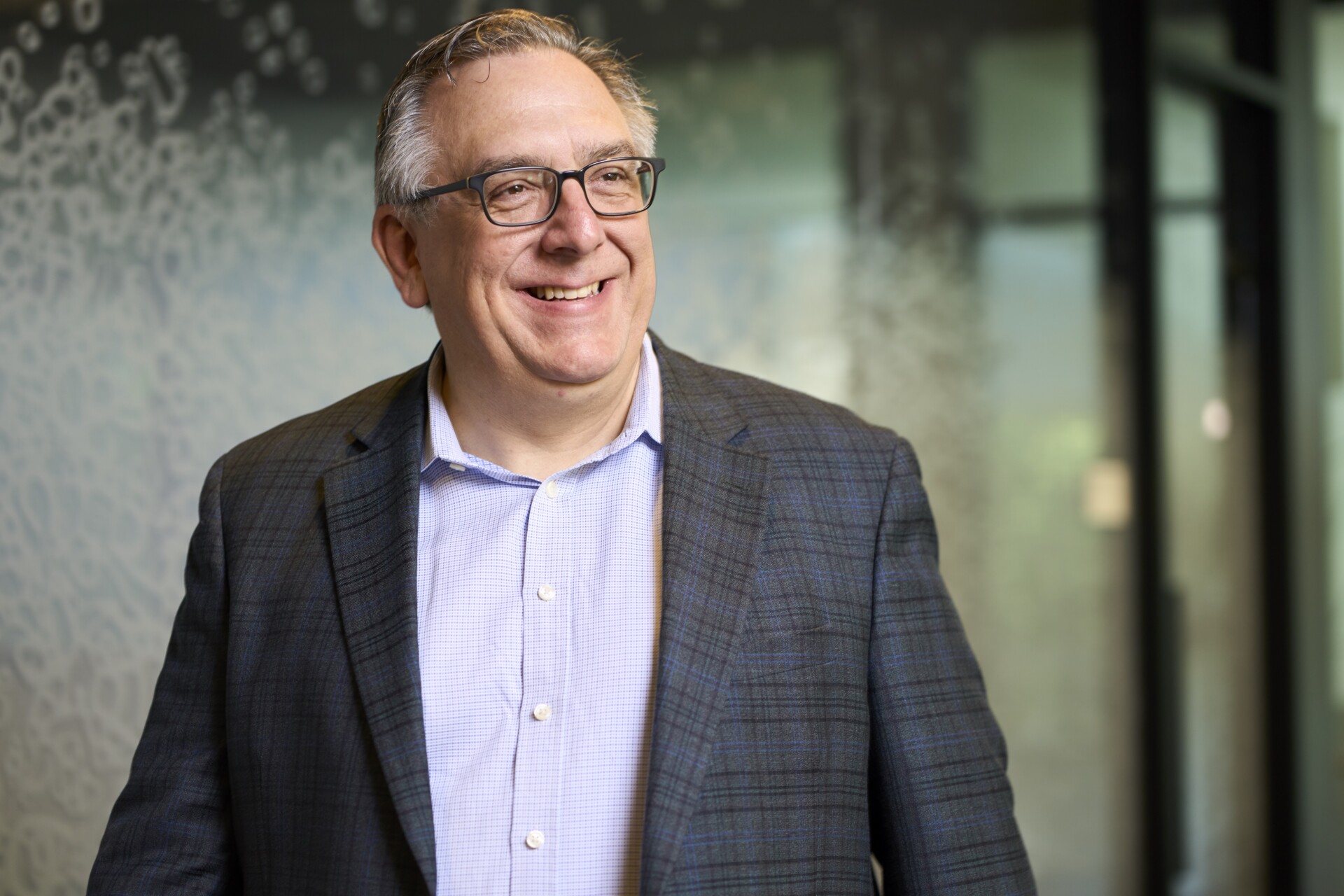Culture as a Competitive Edge
In “How to Define a Brand’s Soul,” AdWeek asks what the difference is between a brand with soul and one that is soulless. The answer: “brands with a soul share a passion and motivation with their consumers, and they have a clear reason for being.
In the case of the Sodexo Group, a multinational food services and facilities management corporation based in Paris — which is the world’s 18th largest employer with €18.4 billion in consolidated revenue, and whose 428,000 employees serve 75 million consumers with over 100 services daily — the\ soul of the brand is vibrant and diverse; one that is filled with pride and passion for both employees and customers, and is dedicated to enriching the world by relying on people to touch the lives of others. What’s truly unique is how acutely the soul of Sodexo is embodied and personified by none other than the company’s CEO, Michel Landel. Born in 1951 to a French father and Russian mother, Landel’s very identity is built on diverse multiculturalism — much like Sodexo’s, whose 33,300 corporate sites are located in 80 countries — and led him, quite naturally, to an international career. Landel’s education, various career posts around the world, travels, and personal philosophy all point to the epitome of a leader with a diverse worldview — or more accurately — a true world citizen. Having first joined Sodexo in 1984 to head the company’s efforts in Eastern and Northern Africa, Landel subsequently established the brand’s North American footprint over a 17-year period. Today, Sodexo employs 120,000 people in the U.S., generating approximately 37 percent of the company’s global revenues. Since taking the helm as CEO in 2005, Landel launched the company on its next wave of transformation — one that includes substantial investments in service diversification, gender equality, corporate culture, and diversity, as well.
“IT’S A JOURNEY, YOU CAN’T DECIDE TO WAKE UP ONE DAY AND MAKE YOUR CULTURE A COMPETITIVE EDGE.”
AVOIDING COMMODITIZATION WITH GROWTH
In service-based industries, one of the most frightening scenarios is becoming a victim of your own success, thereby allowing your competitors to commoditize your core offering and commandeer your competitive edge.
“It’s a journey, you can’t decide to wake up one day and make your culture a competitive edge.”
— Michel Landel, Sodexo CEO
Sodexo has shown consistent growth since 2007, and according to an April report by Reuters, saw profits rise 11.4 percent in the first half of fiscal 2014. In fact, a Standard & Poors recent report on the company stated, in summary, that Sodexo has higher-than-average stability and visibility of revenues and cash flow on the average duration of its contracts and customer renewal rates — proof positive that their expansion of services and emphasis on culture and diversity is paying dividends. Further, the report said Sodexo’s management and governance are strong (based upon S&P 500 criteria), underpinned by management’s consistent track record in growing the business, attention to all stakeholders’ interests in the company, and successful, medium-term planning.

THE MISSION OF A COMPETITIVE EDGE
When running a global operation, says Landel, “Operational excellence isn’t enough, the difference [success versus failure] happens at a higher level for stakeholders to make a company like ours work — it is a journey, you can’t decide to wake up one day and make your culture a competitive edge — it takes time, it has to be the fabric of the company, not on a list of initiatives. Frankly, I believe that competitive edge comes from executing the mission of making a difference in our customers’ lives. The conviction is you can do this through people who believe in what they do, and when you get the details right they can make a meaningful difference.”
In other words, it delivers a noncommoditized brand experience. The success of Sodexo’s strategy is in how they manage clients, partners, suppliers, and each other.
“Our strategy evolved when the company transitioned beyond being a single-service provider in food services,” says Landel, who notes clients began to ask Sodexo to provide other management services — including technical maintenance, energy management, and hospital support services — which has led to its growth.
“This helped decommoditize the slate of services we provide,” he says. “For example, in regards to hospitals, we facilitate the transportation of linens, as well as provide patient reception and discharge services.”
“All of these contribute to the patient and staff experience at the hospital, in addition to the food services and a variety of other offerings we provide,” says Landel. Thus, in the example of hospital services, Sodexo can serve as a partner to the C-suite, tactically and strategically, improving hospital operations.
The same is true with Sodexo’s services for colleges and universities, and many other sectors. From patients and doctors to students and professors, Sodexo gets to the core of many of the things that may be taken for granted when viewed singularly, but in aggregate improve quality of life.
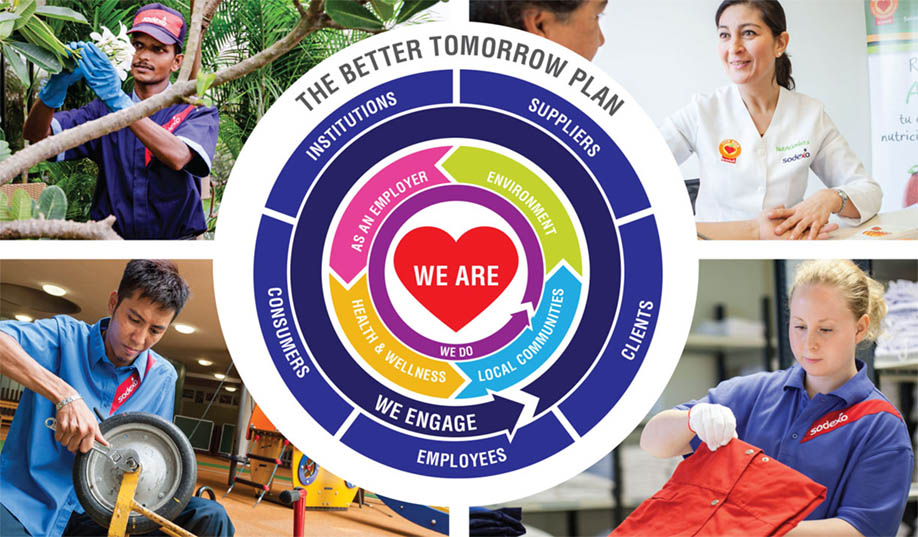
HEART AND SOUL AS A GROWTH STRATEGY
Speaking from his Paris office, Landel emphasizes the critical importance of a human-centered culture, which relates to how employees connect with Sodexo’s mission and its purpose.
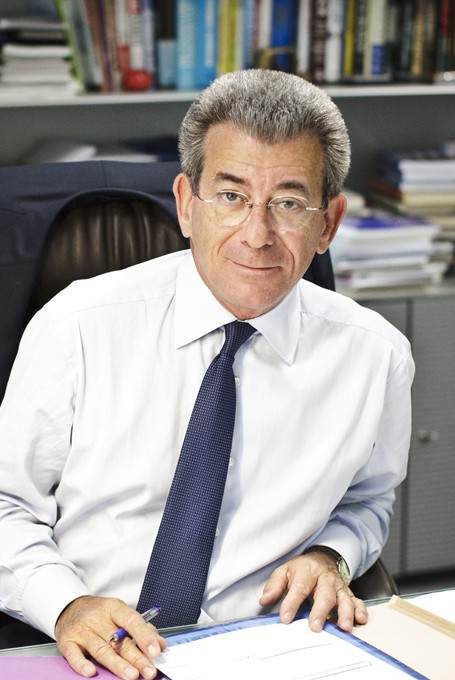
A world citizen who embodies the company’s global views, Landel joined Sodexo in 1984 and became CEO in 2005.
To make that point most clearly, CEO Michael Landel says companies that have a balance in diversity typically outperform competitors and are more innovative Share on X. “Gender balance reflects values that are important in running a great company. It allows for the respect of differences, new perspectives, creativity, and innovation. Companies that are diverse are more efficient and innovative than those that are not,” says Landel. Diversity as a hallmark is something in which Sodexo truly excels. For fiscal year 2013, of its 428,000 employees, 54 percent of the total workforce is composed of women. Additionally, 43 percent of the international executive team are women, along with 43 percent of middle managers, and 38 percent of the board members. By comparison, The Guardiannoted in October 2013 that women perform 66 percent of the world’s work, produce 50 percent of the food, and control approximately $28 trillion in consumer spending. However, among Fortune 500 companies, women hold just 3 percent of CEO positions and only 15 percent of board seats. The question for Sodexo, which is already devoted to diversity as a conduit for growth and competitive edge, is how to get more than 400,000 employees to connect with its mission and purpose of improving quality of life — something Landel and his leadership team are very passionate about. In speaking to three core areas of focus, or imperatives, that are the foundation of why Sodexo is so successful, Landel cites engagement of the teams, a deep feeling of social or community responsibility, and diversity. “It is critical that we ensure employees are engaged and they understand why they are doing what they do and that they make a difference,” he says. “When you are a multinational services company, it is critical that our leaders, middle managers, and all associates feel a sense of purpose to improve quality of life for our consumers.” Landel punctuates this point with the true essence of how Sodexo is connected at a local level: “We create jobs, we create wealth, and we create economic, social, & environmental development of the communities we serve.”
THE HUMAN DIMENSION
A commitment to enriching the lives of the company’s employees, clients, and stakeholders is key to Sodexo’s corporate culture.
“Inspiring CEOs work to build an enduring company,” says Katerin Le Folcalvez, an Insigniam partner who has worked closely with the Sodexo brand. “Michel Landel is building Sodexo to be an effective social elevator for its thousands of dedicated employees around the globe.”
In 2009, Sodexo adopted a continuous improvement approach to guide their corporate actions, entitled the “Better Tomorrow Plan.” The plan’s goal is to address the issues the company identifies as being essential to their market and stakeholders, and is composed of such tenets as business integrity, human rights, diversity and inclusion, and corporate governance.
“We are in a people-driven business, and that often means providing employment and opportunities for advancement to people who are often not given this elsewhere,” Landel says, noting that in many parts of the world, Sodexo serves as a catalyst for developing local workforces and careers, even when an employee’s education and work experience is limited.
To quantify just how much Sodexo believes in this tenet, the company invests 10 percent of its gross margin on training —often developing employees who could be overlooked if not given these opportunities with the service provider.
Beyond acting as a “social elevator,” Landel’s commitment to ensuring Sodexo’s position as an enduring company often means leveraging the corporate footprint to accomplish significant goals. For instance, the company has been a signatory of the United Nations Global Compact since 2003, and according to official statements, “meets the 24 criteria of the four core elements of the UN Global Compact: labour rights, human rights, anti-corruption, and environment.”
Furthermore, in the mid-1990s, while running Sodexo’s U.S. business efforts, Landel spearheaded a global initiative known as “Stop Hunger” after taking stock of the enormous waste present in the food service industry, and the fact that 10 million children in the U.S. alone were suffering from malnutrition.
“Our sense of purpose is to provide a better quality of life for our customers and their customers,” says Landel. “In order to grow and compete on a global scale we have to be committed to the people and regions we serve, and our leadership, employees, mission, and values have to reflect that.” Landel’s “Stop Hunger” initiative is now in more than 40 countries thanks to the same engaged employees who are the critical part of Sodexo’s business model.
LEADERS AS CITIZENS OF THE WORLD
Diversity in thinking moves beyond gender and into internationalization of leadership in the company. Landel explained internationalization as being able to combine a world perspective with local relevance or connectedness. One of the most difficult challenges is to find and develop people as leaders and help them understand a more global point of view. “It takes people who are willing to adapt and change and understand cultural differences and it takes organizations that are open and acceptable of new leaders from different parts of the world,” notes Landel. “Simply mixing in different leaders from different parts of the world does not make you a global company.”
Landel also shares that “diversity in thought” can only be applied if the managers in place know how to relate to the people that work for them. This is likely why Sodexo employs a chief diversity officer and even has behavioral scientists on staff, among other unique positions, to keep a strategic and tactical eye on Sodexo’s human capital as well as trends in the workplace that impact the company.
When pressed on his biggest lesson learned — one that he would share with other leaders — he notes it has been vetting and choosing the right members for his executive committee based upon the strategic path the company is on, and what that requires in a leader.
“According to a report by Reuters, Sodexo saw profits rise 11.4 percent in the first half of fiscal 2014.”
“When I meet with executive candidates, it is assumed they have the necessary skills, but the most important piece is not what you know, but how you behave, how you interact with people,” says Landel. Detecting this is often hard even in a complex, layered interviewing process, he adds. “The process of hiring is delicate and difficult, and even with key filters in place, we sometimes make mistakes,” Landel says.
His advice, and lesson learned, were one in the same: “I have hired talented people in the past without testing them in another executive role first that were not a good match and made the decision I would not do that again. The risk is simply too great.”
In closing, Landel says on the topics of growth, culture as a competitive edge, and gender equality that, “This is a journey and it is proving to be a good strategy. We realized early on that the engine of making it happen are engaged people.”
In our interview with Michel Landel, IQ delved deeper into his thoughts on the challenges in selecting the right leadership talent, and running a company where leaders must set an example for each other and employees by being world citizens. The goal was to learn more about the attributes Landel seeks out and the expectations he has for the executives who are accountable for a mission-driven competitive edge at one of the world’s largest employers. Landel shared nine insights that are essential to being a successful leader at Sodexo.
NINE INSIGHTS THAT ARE ESSENTIAL TO BEING A SUCCESSFUL LEADER AT SODEXO
- Know how to adapt on a global and local level
- Accept and expect to be challenged
- Possess a certain humility
- Respect other’s opinions
- Have a collective interest as your first objective (before personal objectives)
- Like interaction with other people
- Lead by example
